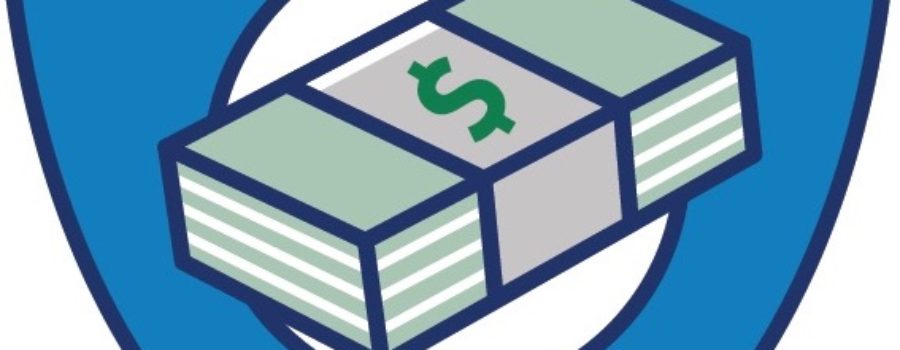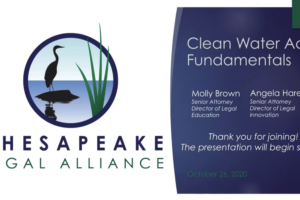How can the CARES Act help your nonprofit?
In response to the coronavirus pandemic, on March 25, 2020, the federal government passed the Coronavirus Aid, Relief, and Economic Security (CARES) Act. This new law is intended to help small businesses, including nonprofits, weather the economic downturn caused by this pandemic by providing for streamlined access to grants and low-interest loans, as well as loans forgiveness and deferral options
Chesapeake Legal Alliance has been closely following the legislation and we have summarized the key CARES Act economic relief programs below. The situation remains fluid, however, as the details of the process are still being honed by the Small Business Administration (SBA) and the banks.
Nevertheless, TIME IS OF THE ESSENCE. Small business and nonprofits around the nation are racing to take advantage of these funds. If your nonprofit is eligible, we suggest you apply as soon as possible.
Although seeking government loans and grants may seem intimidating, Congress intended to make the process accessible and quick. As always, if you need help understanding whether your nonprofit organization qualifies for these programs, please submit a request for assistance here. CLA is actively recruiting volunteer corporate lawyers to help with your CARES Act issues.
We are all in this together!
– The CLA Staff
_________________________________
CARES Act Economic Relief Programs
![]()
The Paycheck Protection Program Loan (PPP) is an emergency loan program designed to incentivize business to maintain their employees during the COVID-19 pandemic. These funds can be used to cover payroll costs, health care benefits, facilities costs (rent obligations, utility payments), mortgage interest, and interest on other debt. These loans are provided via SBA-certified lenders.
- Eligibility: The nonprofit must have in existence as of February 15, 2020; has <500 employees.
- Amount & Terms: 2.5x the average total monthly payroll (capped at $10 million).
- 1% interest rate (for any portion of the loan that is not forgiven).
- Loan payments will be deferred for six months.
- No collateral or personal guarantees are required.
- Neither the government nor lenders will charge small businesses any fees.
- The total loan amount will be reduced by any payroll tax credits received under the Families First Coronavirus Response Act.
- Forgiveness: SBA will forgive up to 100% of the loan if all employees are kept on the payroll for eight weeks and the money is used for payroll, rent, mortgage interest, or utilities. However, at least 75% of the total loan must be used for payroll costs.
- How to Apply: Download a copy of the SBA PPP Borrower Application form HERE. Your selected lender will likely require completion of its own application as well.
- Additional Information: The official SBA PPP Rule is published HERE.
![]()
The Economic Injury Disaster Loan (EIDL) provides a low-interest loan program, including an emergency cash advance of $10,000. This loan program is administered directly through the SBA.
- Eligibility: <500 employees
- LOAN: up to $2 million; 2.75% interest rate; up to 30-year term, with deferred payments for 12 months.Amount & Terms:
- EMERGENCY CASH ADVANCE: $10,000, with funds available in three days.
- Forgiveness: You are not required to repay the $10,000 cash advance, even if you are denied an EIDL. However, if you receive a PPP loan, the cash advance will be subtracted from the PPP funds eligible for forgiveness. In plain English: You can’t double-dip. If you need cash quickly, apply for the Emergency CashAdvance for an initial $10,000. You can also get a PPP loan, which is likely to take longer to approve. However, the Emergency Cash Advance is counted as part of your PPP loan forgiveness.
- How to Apply: Application for the cash advance is part of the loan application. Apply HERE.
The Express Bridge Loan Pilot Program allows small businesses who currently have a business relationship with an SBA Express Lender to access up to $25,000 quickly. These loans can be term loans or used to bridge the gap while applying for a direct SBA EIDL. However, the Bridge loan would be repaid in full or in part by proceeds from the EIDL loan.
Additional Debt Relief: SBA is offering additional debt relief for some micro-loans and existing SBA serviced disaster loans.
Other Resources
The Choose Clean Water Coalition has put together a fantastic resource for nonprofits that reviews both state and federal assistance programs. Check out their COVID-19 Stimulus Resources Page, which includes a webinar on how to apply for the EIDL program.
Detailed information on these programs can also be found on the Small Business Administration website. The U.S. Senate Committee on Small Business and Entrepreneurship also created a FAQ for the CARES Act.
Additional CARES Act questions?
Submit your questions HERE. CLA is actively recruiting volunteer attorneys to help answer your CARES Act questions.
#ICYMI: Check out CLA’s latest blog about the EPA’s recent pandemic “enforcement” guidance.





